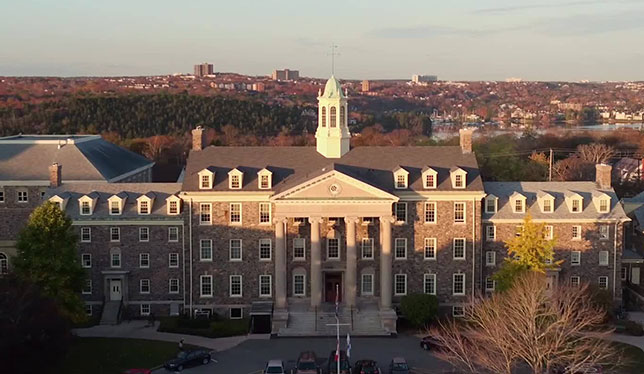Ontario’s auditor general delivers recommendations to four universities
The audit found that some universities have struggled to fill a funding gap created by the province’s decision to reduce and freeze domestic tuition fees.

Work is underway at four Ontario universities as well as at the province’s ministry of colleges and universities to act upon 21 recommendations by Ontario’s auditor general. The recommendations are designed to tighten up oversight, financial management and governance in the wake of Laurentian University declaring insolvency in early 2021.
In a 113-page report released in late November, auditor general Bonnie Lysyk and her team found that a provincially imposed 10-per cent reduction in 2019 and subsequent freeze of domestic student tuition fees has led to an overreliance on international student enrolment – a situation that could put the financial health of the province’s 23 public universities at risk.
In addition to recommending that the province assess universities’ financial sustainability under current funding and tuition levels and become more proactive when universities show signs of serious financial trouble, Ms. Lysyk said it also needs to articulate a strategic vision for Ontario’s postsecondary system that clarifies differences between university and college programs and avoids undue competition for students.
“At some point, that becomes unhealthy,” Ms. Lysyk told University Affairs in an interview. Her report went further, stating that the ministry “has not evaluated the sector as a whole to rationalize how many universities are needed.” The combined effect has been an “every university for itself ” mentality. The ministry responded to the auditor that it would work with the sector to develop a longer-term strategic plan, including actions for financial and operational sustainability, as well as assess current funding levels, implement a new financial accountability framework and work with universities experiencing financial difficulty.
Audits were conducted at North Bay’s Nipissing University, Algoma University in Sault Ste. Marie (with campuses in Brampton and Timmins), the University of Windsor and Ontario Tech University in Oshawa. The four small- to medium-sized institutions were selected because they had performed below the provincial average on four of seven key financial indicators set by the ministry. Only one – Algoma – showed a consistent annual surplus between 2016-17 and 2020-21.

While improvements are needed, the universities were found to be financially sustainable. “Each one has a very different situation and we did not see the same sense of urgency as we saw with Laurentian or the same history,” said Ms. Lysyk. Her office also released a revealing report on the Sudbury institution in November, which explored how that university got to the point of declaring insolvency.
Among the four universities, auditors commonly found weaknesses in financial management practices, such as a lack of an articulated business case for every capital project. The universities did not always have or follow policies capping external financing, did not present projected cash #ows to their boards, and did not regularly analyze or make adjustments according to the profitability of individual academic programs.
Reliance on international students, mostly from India, ranged from just one per cent of Nipissing’s 6,200-student enrolment, to Algoma — the smallest university audited, with 3,500 students — drawing 76 per cent of its $23.5 million in tuition revenue from international students in 2020-21. Most of these students were enrolled at Algoma’s Brampton campus, nearly 700 kilometres away from its northern Ontario base.
Ms. Lysyk recommended that universities diversify recruitment beyond one or two international markets according to priority countries identified by the federal government. She also found that international recruiters were incentivized to prioritize quantity over quality — though universities argued that quality remained a priority — and that the province needed to standardize grade conversions.
Algoma, with 85 per cent of international students coming from India, already has a plan to bring that number down to no more than 50 per cent from any one country by 2025-26.
Its president, Asima Vezina, explained that the university chose to start small and picked India as a focus when the university significantly expanded international student recruitment for the 2018-19 year, a time when the university was working to reverse a serious enrolment decline.
The auditor also advised university boards to strengthen members’ financial literacy and reduce their size to between 14 and 16 members, considered “best practice” outside of universities, to ensure all board members fully participate in deliberations, information-sharing and decision-making. Ontario university boards showed an average of 29 members, and the four audited universities’ boards ranged from 18 to 32 members. However, Glen Jones, a professor of higher education and former dean at the University of Toronto’s Ontario Institute for Studies in Education, wrote in an email to University Affairs that while “there are certainly university boards that are probably too large,” he continued that “there is no single template for board membership, given differences in mission between universities and the different communities that they serve.”
Universities react to recommendations
The auditor general, whose opinions are independent of government, does not have the power to compel the organizations she investigates to implement her recommendations. Still, the audited universities have demonstrated their willingness to comply with the recommendations. U of Windsor said in its response to the auditor that Ontario’s tuition reduction and freeze, which has been in place for four years, represented a $32-million hit to its budget. The institution has been working on a “number of changes,” and is developing a workplan to address the auditor’s 14 recommendations specific to the university, according to a statement released after the audit’s publication.
In a statement published as part of the auditor’s final report, Nipissing also pointed to the tuition freeze as a significant financial barrier. The statement notes that as a small northern university, Nipissing’s operating costs are often higher than those of southern universities and the freeze has consequently had “a devastating impact on our financial position.” It also committed to making the recommended improvements.
Ontario Tech, meanwhile, “is performing well in a challenging environment for our sector,” president Steven Murphy said in an emailed statement to University Affairs, and expected to implement most of the audit’s recommendations over the next year.
In an interview, Ms. Vezina called the audit “very helpful,” given Algoma’s plans for continued expansion in Brampton, and said the university planned to implement all of the recommendations. First opened in 2009, the Brampton campus was expanded in 2018, a feat the auditor general’s report pointed out was accomplished without significant capital investments, using leased space and agreements with local non-profits to provide ancillary services.
The auditor general’s office will check back with the ministry and all four universities to find out how they have responded to the recommendations, including which ones they have implemented, and verify that information, in time for a follow-up report that will form part of the office’s annual report in late 2024. The office will continue to follow up with any outstanding recommendations for another three years.
Ms. Lysyk said all of the universities were cooperative and transparent during the audit, an important quality when it comes to sound financial management. She added that it appeared during the audit that the crisis at Laurentian – which resulted in major cuts to university staff and programs, a significant financial and administrative reorganization for the institution, and a political crisis at both the provincial and federal levels of government – “sent a wake-up call” to these universities, one that they are all learning from.
Featured Jobs
- Education - (2) Assistant or Associate Professors, Teaching Scholars (Educational Leadership)Western University
- Veterinary Medicine - Faculty Position (Large Animal Internal Medicine) University of Saskatchewan
- Canada Excellence Research Chair in Computational Social Science, AI, and Democracy (Associate or Full Professor)McGill University
- Psychology - Assistant Professor (Speech-Language Pathology)University of Victoria
- Business – Lecturer or Assistant Professor, 2-year term (Strategic Management) McMaster University
















Post a comment
University Affairs moderates all comments according to the following guidelines. If approved, comments generally appear within one business day. We may republish particularly insightful remarks in our print edition or elsewhere.